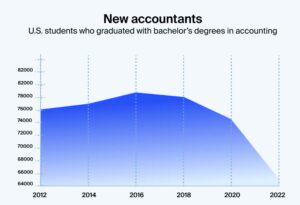Thinking about jumping into the world of bookkeeping? You’re probably wondering if you need a license to get started. Well, here’s the scoop: unlike driving a car, you don’t need a license to be a bookkeeper in most places. But that doesn’t mean there aren’t other things to keep in mind. From education to skills, and maybe even some certifications, there’s a lot to consider if you want to make it in this field. Let’s break it down so you know what to expect and how to get going.
Key Takeaways
- You don’t need a formal license to become a bookkeeper, but having the right education and skills is important.
- Certifications aren’t required but can boost your credibility and job prospects.
- Staying updated with the latest bookkeeping software and practices is crucial for success.
The Great License Debate: Do Bookkeepers Really Need One?

Why Bookkeeping Isn't Like Driving a Car
Alright, buckle up! Unlike driving, where a license is non-negotiable, bookkeeping is a bit more laid-back. You don’t need a government-issued license to dive into the world of bookkeeping. Imagine if you needed a license to write down numbers! That said, bookkeeping is no free-for-all. It’s all about having the right skills and knowledge to keep those numbers in check.
The Legal Lowdown: What the Law Says
Here’s the scoop: in most places, bookkeepers don’t need a formal license. Yep, you heard it right. No license! But don’t pop the champagne just yet. While the law might not demand a license, having solid qualifications and a knack for numbers is key. This is especially true if you’re aiming to stand out in a competitive field.
Freelance vs. In-House: Does It Make a Difference?
So, you’re thinking about going freelance or maybe joining a company? Good news! Whether you’re flying solo or part of a team, the licensing rules don’t change. Freelancers and in-house bookkeepers both skip the license line. However, freelancers might need to register their business, depending on local laws. So, do your homework on that front.
Pro Tip: While you may not need a license, certifications can seriously boost your credibility. Consider them your secret weapon in the bookkeeping world.
In the end, while a license might not be on the checklist, having the right skills, education, and maybe a certification or two can make all the difference. So, keep learning and stay sharp!
Education and Skills: The Real MVPs in Bookkeeping
Degrees and Diplomas: Are They Worth It?
So, you’re thinking about jumping into the world of bookkeeping, huh? Well, let’s talk degrees and diplomas. The truth is, while having a degree in accounting or finance might give you a leg up, it’s not the be-all and end-all. Many bookkeepers have thrived with just an associate degree or even no degree at all. What’s more important is your ability to understand accounting principles and apply them effectively. Think of a degree as a nice-to-have, not a must-have.
Certifications: The Cherry on Top
Certifications can be your secret weapon in the bookkeeping world. They’re like the cherry on top of your skills sundae. Getting certified by reputable organizations like the American Institute of Professional Bookkeepers (AIPB) or the National Association of Certified Public Bookkeepers (NACPB) can seriously boost your street cred. Employers love seeing these on resumes because they demonstrate commitment and expertise. Plus, they can open doors to better job opportunities.
Tech-Savvy Bookkeepers: A Must in the Digital Age
In today’s digital world, being tech-savvy isn’t just a bonus—it’s a necessity. Bookkeeping software like QuickBooks, Xero, or FreshBooks is the backbone of modern bookkeeping. Knowing your way around these tools can make you a superstar in the office. And hey, if you’re not familiar with them yet, no worries! There are tons of free trials and online tutorials to help you become a pro. Being comfortable with tech doesn’t just make your job easier; it makes you indispensable.
Navigating the Bookkeeping Career Path Without a License
Building Credibility Without a License
So, you’re diving into the world of bookkeeping, and guess what? You don’t need a fancy license to make a splash. Credibility is your golden ticket here. Start by gaining some hands-on experience. Look for entry-level jobs or internships where you can get your hands dirty with real financial transactions. Volunteering for local nonprofits or small businesses can also beef up your resume in no time.
Networking: Your Secret Weapon
In the bookkeeping world, who you know can be just as important as what you know. Networking isn’t just for social butterflies; it’s for anyone looking to boost their career. Attend industry events, join online groups, and connect with fellow bookkeepers on platforms like LinkedIn. You never know, the next person you meet might just be your ticket to a new job opportunity or a valuable mentorship.
Continuing Education: Stay Ahead of the Curve
The financial world is always evolving, and you don’t want to be left behind. Keep your skills sharp by diving into online courses, attending workshops, or even just reading up on the latest trends in bookkeeping. Consider getting certifications from recognized organizations, which can add a nice touch to your professional profile. Remember, in this field, being a lifelong learner is key to staying relevant.
The Unspoken Rules of Bookkeeping: Beyond Licenses

Attention to Detail: The Bookkeeper's Superpower
In the world of bookkeeping, attention to detail is your secret weapon. Imagine you’re balancing a tightrope, where one tiny slip can send you tumbling. That’s bookkeeping in a nutshell. You’re not just crunching numbers; you’re a detective on the hunt for discrepancies, ensuring every penny is accounted for. Whether you’re reconciling bank statements or preparing invoices, your eagle eye for detail keeps financial chaos at bay. It’s not just about numbers; it’s about accuracy and precision.
Ethics and Integrity: Non-Negotiables
Being a bookkeeper is like being a financial guardian. Your clients trust you with sensitive data, and that trust is sacred. Upholding ethics and integrity is non-negotiable. You’re the gatekeeper of financial truth, ensuring that every transaction is honest and transparent. Cutting corners or fudging numbers? That’s a no-go zone. Your reputation rides on your ability to handle finances with the utmost honesty.
Client Relationships: Building Trust and Loyalty
Building strong client relationships is like constructing a bridge of trust. You’re not just a number cruncher; you’re a partner in your client’s financial journey. Regular check-ins, clear communication, and a genuine interest in their success cement your role as a trusted advisor. When clients feel valued and understood, they’re more likely to stick around, and that loyalty is worth its weight in gold.
"In bookkeeping, your true currency is trust. Nurture it, protect it, and it will reward you with lifelong client relationships."
Remember, it’s not just about the numbers; it’s about the people behind them. Focus on these unspoken rules, and you’ll not only survive but thrive in the world of bookkeeping.
Conclusion
So, do bookkeepers need a license? Well, not really, but having one could be your secret weapon. While you can dive into the world of numbers without a formal license, having some solid education and maybe a certification or two can really set you apart. Think of it like this: you don’t need a fancy chef’s hat to cook a great meal, but it sure helps if you know your way around the kitchen. Bookkeeping is all about keeping things neat and tidy, and if you’re good at that, you’re already halfway there. Whether you decide to go solo or join a team, just remember, the key is to keep learning and stay sharp. After all, in the world of bookkeeping, accuracy is king, and a little extra know-how never hurt anyone. So grab your calculator, and get ready to crunch some numbers!
Frequently Asked Questions
Do I need a license to work as a bookkeeper?
No, you don’t need a license to be a bookkeeper. However, having the right skills and education is important to do the job well.
Is getting a certification helpful for bookkeepers?
Yes, getting a certification like the Certified Bookkeeper (CB) can make you more credible and improve your chances of getting a job.
What education do I need to become a bookkeeper?
You usually need a high school diploma or GED. Some bookkeepers also have an associate or bachelor’s degree in accounting or finance.







